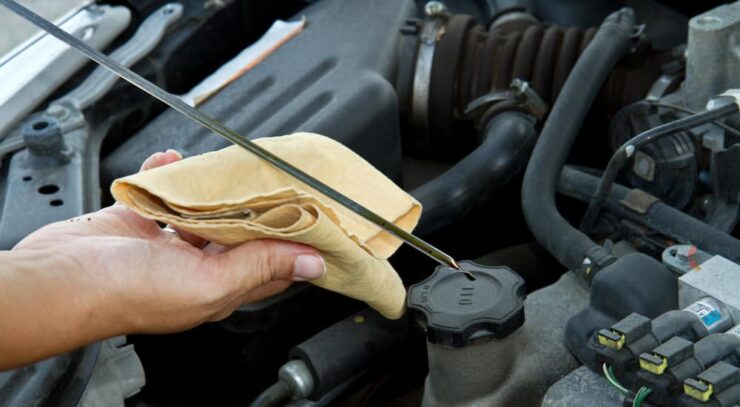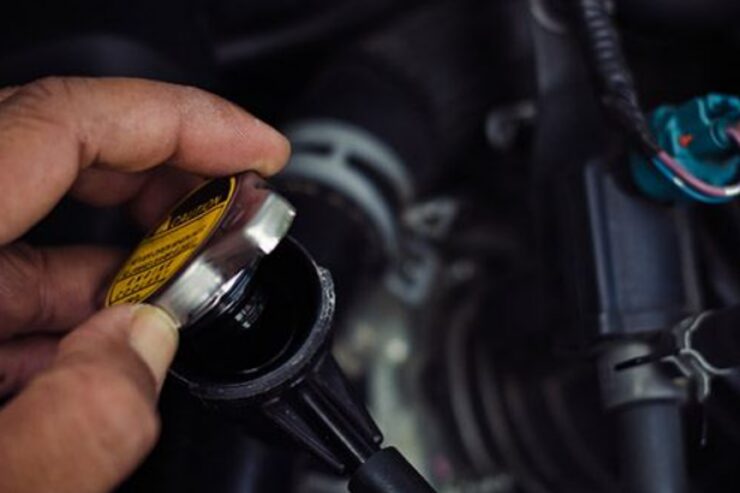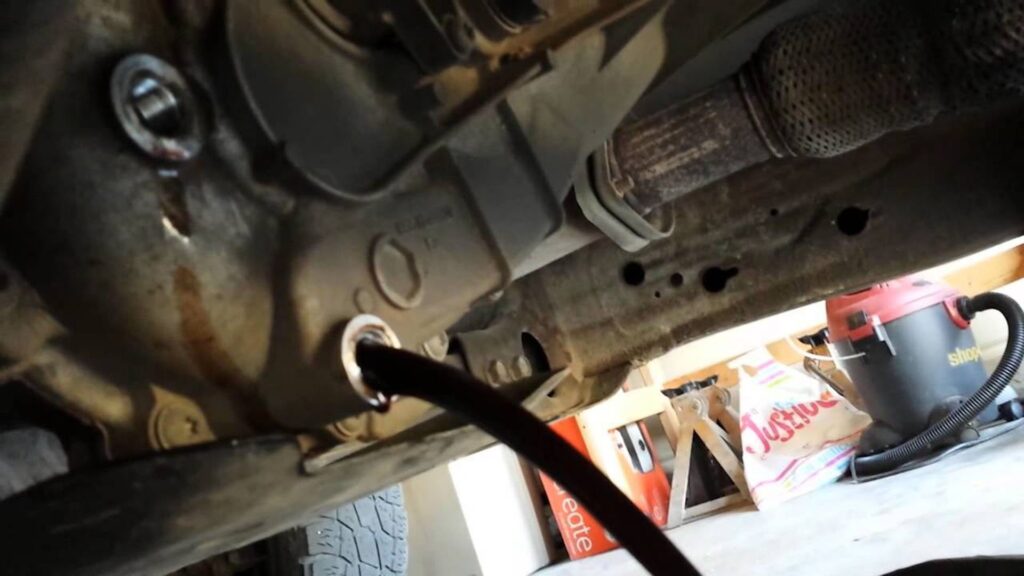With the regular fluid change, how to change transmission fluid Chevy Silverado 1500 will stay lubricated all the time. Photo: harry_nl
Chevy Silverado 1500 has grabbed attention as one of the best pickup trucks in the automobile industry. Keeping a regular track of the transmission fluid is one of the routine tasks of Silverado operators.
When you have not replaced fluids every 30,000 miles, you may find problems with your Chevy Silverado. In most cases, the manufacturers’ manual contains detailed information related to the mileage intervals for changing the fluid.
Lubricating and cleaning- these are two important functions of a vehicle’s vital fluid. During the circulation of the fluid through different parts, it collects dirt over time.
In some cases, the debris would deposit below. For this reason, auto technicians rely on the transmission fluid flush machine to remove debris before pouring new fluid.
DIY enthusiasts will know something valuable from reading this guide.
All You Need to Know About Transmission Fluid

Usually available in red or green color, transmission fluid can be easily distinguished from other automobile fluids. It helps in lubricating your vehicle’s transmission components to ensure optimal performance.
You need to choose the right transmission fluid for manual and automatic transmissions. However, you can associate this fluid with anti-wear additives, surfactants dispersants, corrosion inhibitors, lubricating qualities, and viscosity index improvers.
There are several other additives making a difference in the performance. To say simply, transmission fluid is a chemical cocktail, and without the right amount of fluid, you may not enjoy the best driving experience.
Transmission fluid has the potential to prevent damages and abrasion to your car’s internal parts. You need to decide on it based on what type of transmission is present inside your truck.
Automatic transmissions need heavyweight hypoid gear oil. On the contrary, a manual transmission will need standard motor oil or heavyweight oil.
As the transmission fluid lubricates different transmission parts, it benefits different other ways. It cleans metal surfaces to protect them from wear and tear.
The fluid also decreases high operating temperatures while refining the cooling function. Moreover, it can condition the gasket and increase rotational speed.
How Does this Transmission Fluid Work?

Step 1: Supply Hydraulic Pressure
If it is an automatic transmission, the fluid supplies hydraulic pressure, which is essential for different transmission functions. With the flow of the fluid through the automatic transmission, you can find varying pressure levels.
However, the engine load, gears, and driving conditions make a difference in the pressure level.
Step 2: Transmission Fluid Gets Pressure from Torque Converter
A torque converter is a cylindrical pump present at the front. Without this front, the transmission fluid will be of no value. The fluid gets pressure for proper functioning.
Filled with metal fins, small fans, spinning rotors, and an internal pump, the converter sucks the fluid and drives it to the inner housing. The spinning process of the transmission fluid helps in gaining speed and producing the fluid pressure force.
Due to high pressure, the fluid comes out of the converter and gets into the major functional part. This part includes bands and transmission gears.
Step 3: The Flowing Fluid Helps with Lubrication
The transmission fluid lubricates the inner parts and cools them. The shifting gears and rotating transmission bands need regular lubrication. The fluid needs proper circulation to avoid deterioration to transmission.
Every car manual has information about the type of transmission fluid used for the vehicle. You can check the maintenance section to know about it.
Regardless of whether you how to change transmission fluid Chevy Silverado 1500 uses automatic or manual transmission, you have to create a schedule for changing its fluid.
The scheduled maintenance will prevent the risk of early failure. You can consult with a local dealer to know the frequency of adding new transmission fluid to your full-size truck, Chevy Silverado 1500.
How to Change Transmission Fluid Chevy Silverado 1500

Step 1: The Replacement of the Fluid is Quite Simple
You have to go through some simple steps to get benefits in the future. Most importantly, an automatic transmission filter kit is one of the things needed for this process.
It includes an O-ring and a new transmission filter with a gasket. You only require minimal tools.
Step 2: Get your Chevy Silverado Ready
Under an operating temperature, you can find better and easier drainage of the transmission fluid. Thus, let your vehicle idle for some minutes.
Turn off the ignition system and park your vehicle on some even surface. You can then lay down a newspaper/cardboard under a catch pan. Start removing bolts from either side of your transmission pan.
However, at this step, you have to be careful while dealing with the hot fluid and exhaust parts.
Step 3: Removal of the Old Fluid
To tilt the pan and drain it, you must loosen all other bolts. After removing those bolts, you need to lower the transmission pan. Use the catch pan while dumping the rest of the fluid.
You can take a screwdriver to break your gasket seal. To add the new gasket, you need to remove the old gasket and other materials present on the pan and transmission.
Step 4: Removal of Metal Shavings
Cleaning the gasket surface is highly important. You have to focus on the transmission housing and the pan. Check the pan thoroughly to identify the internal damage signs and metal shavings.
Step 5: Manage the Filter
Make sure that you have removed the O-ring and old transmission filter. As there is fluid in the filter, you have to place the drain pan below it.
Step 6: Install the New Filter and Place the Pan
During the transmission filter installation, you have to ensure that its O-ring is present at the proper place. You must place your pan flat on the transmission.
While fitting the new gasket, you need to use oil-soluble grease. It is better to avoid using adhesive and gasket sealer.
Step 7: Refilling and Testing
You can now start refilling your transmission with the right fluid. You have to read manufacturers’ instructions to do it properly. After doing it successfully, you can run your car engine once again. It helps in warming up the newly added transmission fluid.
It is one of the best ways of checking the transmission’s function. You must ensure that there is no leak from the system. If you have detected any leaks, you must run your Silverado up to its operating temperature.
The last step is to check your transmission fluid level. You can use a dipstick to identify the right fluid level. You must not overfill the transmission with your fluid. A low fluid level does cause a hazard when you are driving the vehicle.
However, it indicates the signs of leaks in your system. Fill up the transmission and check it daily. You will notice how the level is going down slowly. It is one of the ways of assessing severe leaks. Inspect the transmission visually and try to identify the problem.
Step 8: Tools Needed to Change your Transmission Fluid
As one of the DIY enthusiasts, you may like to replace the Chevy Silverado transmission fluid on your own. You know that there are two ways for the automatic transmission fluid. The first is to pump out the old fluid before pouring the new one.
The second one is the drop-the-pan method that needs no pumping systems. It is the easier choice, although you can find some old fluid left behind. For the second method, you need basic tools, like-
-
- Screwdrivers
- Socket wrenches
- Mallet
- Wheel chocks
- Longneck funnel
- Brake cleaner
Buy these few tools to manage your transmission fluid changing process easily.
Differential Fluid for Chevy Silverado 1500

Chevy Silverado models are available with steerable and standard rear axles. The standard one uses synthetic gear oil (75W-90). The steerable axle relies on the synthetic gear oil like that of the standard one.
The 2005 Chevy Silverado needs 80W-90 gear oil for its performance. Most users have found that Dexron is often the best transmission fluid for the used transmission in your Chevrolet Silverado 1500. You can find which used or rebuilt transmission is the right match for your truck by going to carpartplanet.com.
Available in a range of quality grades, Dexron is a perfect choice for most automatic transmission fluids. It includes friction modifiers ensuring the ultimate protection to the transmission’s internal surfaces.
There are other different types of transmission fluid in the market. Highly Friction Modified fluids are similar to Dexron. Their friction modifiers are highly effective.
You will also find synthetic fluids, which are costlier than Dexron. They can endure high-temperature fluctuation while reducing shearing and friction. With manual transmissions, you can use hypoid gear oil with high resistance to temperature and pressure.
These transmissions also work best with plain motor oil with simple chemical composition.
How many Quarts of Transmission Fluid Needed for Chevy Silverado 1500?
A Chevy Silverado 1500 transmission flush can use around 10 quarts of fluid. The right amount of fluid ensures proper cleaning and flushing out of the system.
Based on the transmission type, you can find a difference in the quantity of fluid. For instance, a manual transmission may need 13.7 quarts, while the automatic one needs about 13.4 quarts.
How Much Transmission Fluid to Add if Empty?
When you have drained transmission fluid, you may need 4 to 12 quarts of fluid for refilling it. You must read the manual to know the recommended amount of transmission fluid.
Take a step when it is a low fluid level.
When to Replace Transmission Fluid?
Transmission fluid starts deteriorating with time.
To avoid any adverse effect on your transmission, you have to change this fluid frequently. The frequency of replacing your fluid depends on the heaviness of your transmission.
While driving your vehicle in the city, you need frequent stops. It can raise the transmission’s operating temperature resulting in higher pressure on the fluid.
The best thing is to read the manual to change your transmission fluid. To ensure that the fluid is in perfect condition, you need to check some factors
- The fluid color- In most cases, you can see transmission fluid with light red color. Due to deterioration, it turns out to be darker. It indicates that you must change the fluid.
- Smell- The fluid in the best condition emits a pleasant smell like that of petroleum. When you feel a bad smell, you have to replace the fluid.
- Your driving behavior- While driving the vehicle, you may feel the noisy and rough shifting of transmission. It is important to check the transmission fluid.
- Consistency- Your transmission must have smooth fluid with no debris. While the fluid has dirt, you should change it.
Thus, you have to focus on these factors to make a decision on the fluid change.
How to Change Transmission Fluid Chevy Silverado 1500
Conclusion
A brief guide on how to change transmission fluid Chevy Silverado 1500 will be highly useful to you. Make your transmission long-lasting by replacing the fluid frequently.
Transmission issues are not only a hassle but also a costly affair. Prevent those problems from interfering with your everyday driving. The manual and automatic transmission fluid replacement cost can be of different levels.
However, you can save money by changing the fluid in a DIY method. Buy the essential tools mentioned in this article. Then, follow our guide to change the transmission fluid of Silverado 1500.
Some vehicle owners think that changing the transmission fluid is a troublesome task. Mostly, they face issues with over-tightening seals.
By choosing the right transmission fluid and using innovative tools, you can manage the task easily. There is no physical effort needed to replace the transmission fluid of your Silverado 1500.
Check out whether it is time to replace your transmission fluid and take a step.
